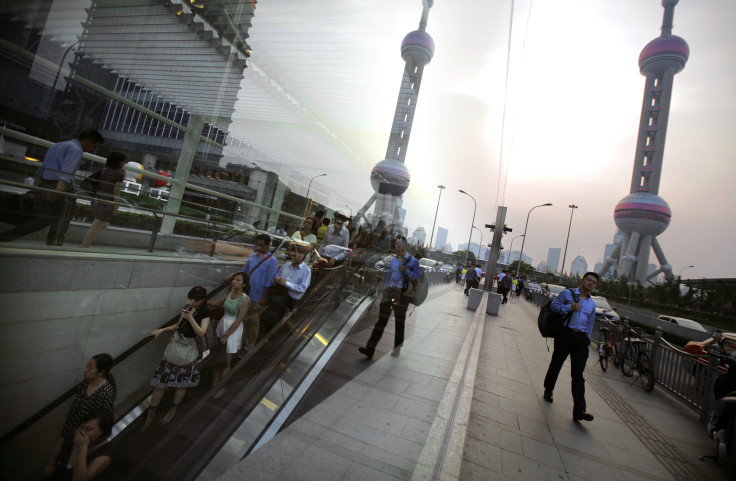Why Did A Fainting On The Shanghai Subway Cause Widespread Panic?

The scene looks like it came out of a bad horror film: A foreign man sitting on a crowded Shanghai subway train suddenly slumps over and then rolls, unconscious, onto the middle of the floor. Rather than come to his aid, the other passengers crowd to one side of the train and then, at the next stop, race into the station in a crazed frenzy. The unconscious person soon woke up, but the ensuing stampede in the station led to a middle-aged man and woman sustaining minor injuries.
The incident -- captured by security cameras on Aug. 9 and released by the Shanghai subway on Wednesday -- seems, at first glance, like just another random encounter in a chaotic country of 1.3 billion. But in China, events like these have occurred with startling frequency in recent years. In 2011, Wang Yue, a 2-year-old girl in Foshan, was struck and twice rolled over by a car after she wandered into the street. Seventeen motorists drove past the girl before a woman finally came to her aid; Wang ultimately died of her injuries eight days later. The event attracted international media attention and prompted nationwide soul-searching: Why don’t people in China want to help strangers in danger?
In searching for an answer, some have turned to cultural explanations. Since Chinese people largely abandoned Maoism as a unifying principle with the introduction of economic reforms, there have been concerns that the country has lost its moral compass. An unwillingness to intervene on behalf of those outside one's network -- a phenomenon referred to by psychologists as the "bystander effect," is symptomatic of a breakdown in China's society. In an editorial published after Wang Yue's death, Chen Weihau, a columnist for China Daily, a state-run English-language newspaper, summarized the contradiction at the core of contemporary China:
"While our ability to boost infrastructure, boost manufacturing capacity and create an economic miracle continue to amaze the world, we are taking one blow after the other for our abdication of the moral high ground."
China is hardly the only country to experience the bystander effect. Take the United States, for example: In 1964, 38 people reportedly watched as a man stabbed Kitty Genovese outside her home in Queens, New York, in a case that spawned a high-profile trial. More recently, a group of men sexually assaulted more than 60 women during a 2000 parade in New York City, but no one notified the police or aided the women. And underage Americans have routinely neglected to notify the police when one of their peers overdoses on illegal drugs or alcohol, for fear that they will be punished for violating the law.
In the United States and elsewhere, this reluctance to help has spurred the creation of so-called “Good Samaritan” laws, which free bystanders from legal liability when helping others. Such laws have been slow to come to China. In a landmark case from 2006, Xu Shuolan, a 65-year-old woman in Nanjing, successfully sued a younger woman who came to Xu’s aid after she fell from a bus. This case, as well as similar ones, inspired Shenzhen to become China’s first city to enact a “Good Samaritan” law in 2013. But the vague wording of the law has attracted criticism, and so far no other city has followed suit.
The foreigner who fainted on the subway -- his identity and nationality remain unknown -- ultimately woke up and walked off the train without assistance. But the incident serves as a poignant reminder that, in China, old societal habits die hard.
© Copyright IBTimes 2025. All rights reserved.





















